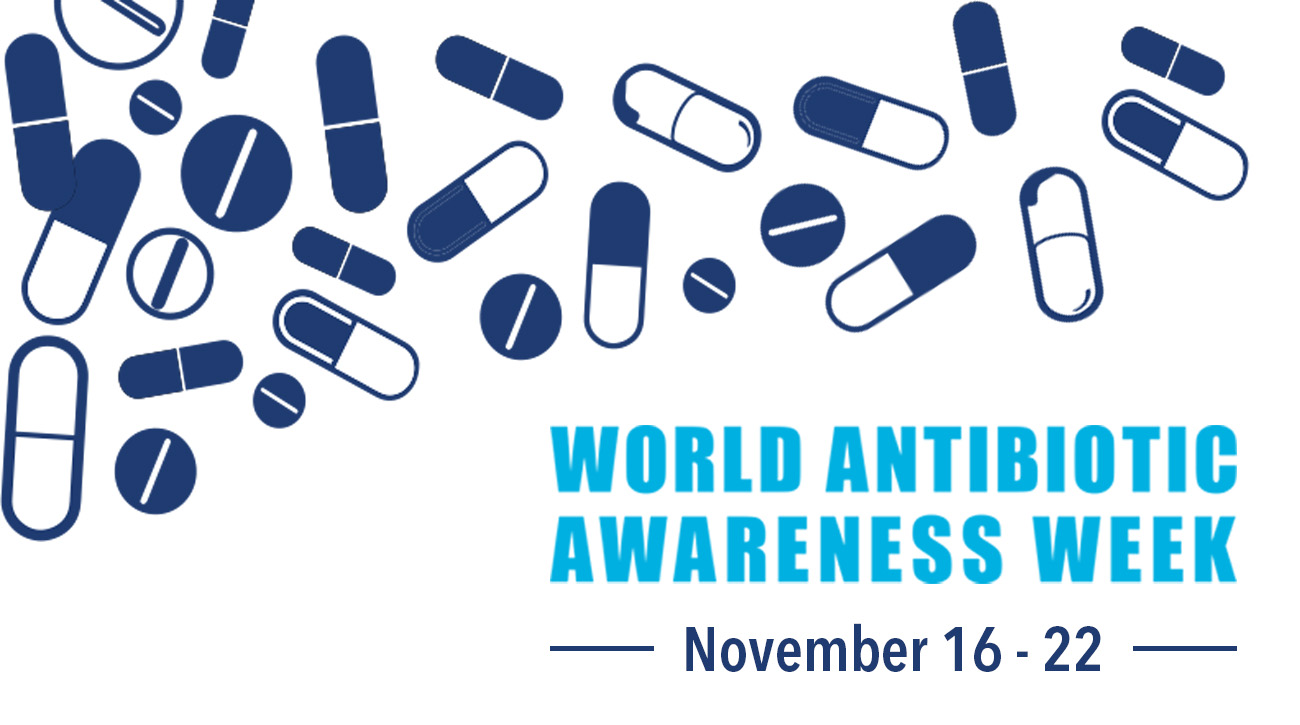Media Contact: Kathy Fackelmann, 202-994-8354, [email protected]
WASHINGTON, DC (November 13, 2015)—Every year, more than two million people in the United States get infections that are resistant to antibiotics and at least 23,000 die as a result, according to the U.S. Centers for Disease Control and Prevention (CDC). Antibiotic resistant superbugs have been reported not just in the United States but all over the world and are increasingly causing infections that cannot be treated with the so-called “wonder drugs.”
To help educate the public and others about this rising threat, the World Health Organization will launch World Antibiotics Awareness Week and the CDC is hosting its annual Get Smart About Antibiotics campaign November 16-22, 2015. Both organizations have said that if antibiotic use is not significantly reduced in all settings—humans, animals, and agriculture—the world will be pushed into a post-antibiotic world where standard medical procedures would become extremely risky and even a simple cut could lead to a potentially lethal infection.
Milken Institute School of Public Health (Milken Institute SPH) at the George Washington University has the following experts available to talk about the global crisis of antibiotic resistance as well as strategies to reduce the threat. To interview the following experts please contact Kathy Fackelmann at 202-994-8354 or [email protected].
Lance Price, PhD, director of the Antibiotic Resistance Action Center and professor in the Department of Environmental and Occupational Health at Milken Institute SPH, is an expert on the topic of antibiotic resistance and can talk about how the routine use of antibiotics in food-animal production contributes to the spread of antibiotic-resistant infections in humans. Price is pioneering the use of genomic epidemiology to understand how the misuse of antibiotics in food animals affects public health. By analyzing the genomes of bacteria found in humans, food, livestock, and environments near food-animal production sites, Dr. Price and his colleagues have traced new strains of antibiotic-resistant pathogens to industrial livestock operations.
Laura Rogers serves as the Deputy Director of the Antibiotic Resistance Action Center and is an expert on antibiotic use in food animal production. Rogers works with government agencies, policymakers and leading companies to improve antibiotic use and stewardship policies at the state and federal levels as well as in the marketplace.
About Milken Institute School of Public Health at the George Washington University: Established in July 1997 as the School of Public Health and Health Services, Milken Institute School of Public Health is the only school of public health in the nation’s capital. Today, more than 1,700 students from almost every U.S. state and 39 countries pursue undergraduate, graduate and doctoral-level degrees in public health. The school also offers an online Master of Public Health, MPH@GW, and an online Executive Master of Health Administration, MHA@GW, which allow students to pursue their degree from anywhere in the world.
About the Antibiotic Resistance Action Center: The Antibiotic Resistance Action Center (ARAC) was created to preserve the effectiveness of antibiotics by engaging in research, advocacy, and science-based policy. The center is focused on finding out-of-the box solutions to antibiotic resistance, one of the greatest public health threats of our time. ARAC’s research agenda aims to accomplish the following critical goals: quantify the drug-resistant human infections arising from antibiotic overuse in food animals; design systems to trace the origins of antibiotic-resistant bacteria; engineer diagnostics to guide antibiotic prescription, improve patient care, and decrease costs; develop probiotic therapies to block the spread of antibiotic-resistant bacteria; use scientific data to promote evidence-based policy; use new and traditional media to engage consumers and policymakers; and work with major food companies to develop market-based solutions to improve antibiotic stewardship. Learn more at our website. Follow us on Twitter and Facebook.


